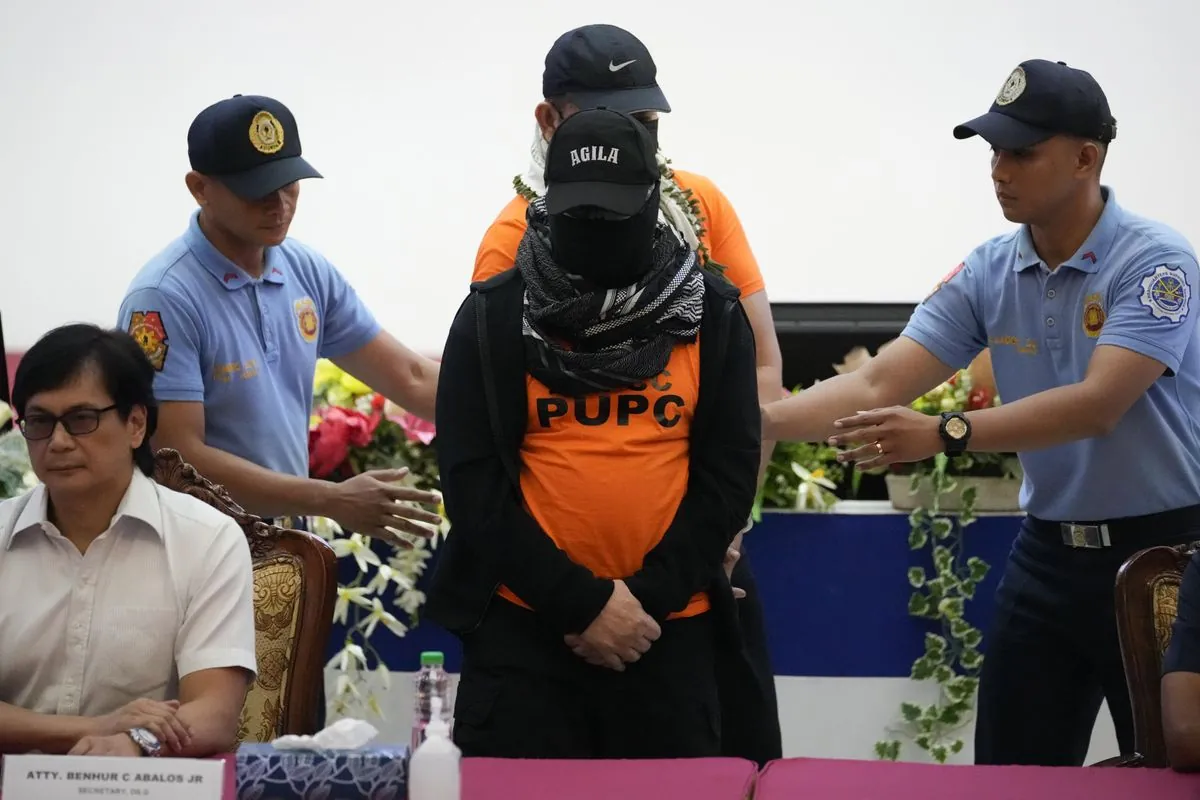In a significant turn of events, Apollo Quiboloy, the self-proclaimed "Appointed Son of God" and founder of the Kingdom of Jesus Christ (KOJC), has surrendered to Philippine authorities. This development marks a dramatic shift in the narrative surrounding the influential religious leader, who has long been a prominent figure in the Southeast Asian nation of over 110 million people.
Quiboloy, now 74 years old, established the KOJC in Davao City in 1985, nearly four decades ago. Over the years, his organization has reportedly amassed a following of six million adherents across approximately 200 countries. However, the preacher's influence extends beyond religious circles, reaching into the highest echelons of Philippine politics.
The charismatic leader's fall from grace comes in the wake of serious allegations, including sex trafficking and fraud. These charges have not only tarnished his image in the Philippines but have also placed him on the Federal Bureau of Investigation's "most wanted" list in the United States. The FBI, as the primary federal law enforcement agency in the U.S., has accused Quiboloy of running a sex-trafficking operation that allegedly exploited young victims through threats of "eternal damnation" and physical abuse.
In response to these accusations, Philippine authorities conducted an extensive search of Quiboloy's 30-hectare compound in Davao City, involving over 2,000 police officers. The operation culminated in the preacher's arrest on September 8, 2024, after weeks of evasion. Quiboloy's lawyer, Israelito Torreon, stated that his client made "the ultimate sacrifice" by surrendering to prevent potential violence against his followers.
President Ferdinand Marcos Jr., who had sought Quiboloy's endorsement during the 2022 presidential elections, commented on the arrest, saying, "He said his followers were willing to die for him. He did not want that to happen, so to his credit, he was still displaying a modicum of leadership." The President assured that Quiboloy would not receive special treatment, highlighting the delicate balance between religious influence and political accountability in the Philippines.
The case against Quiboloy underscores the significant role that religious leaders play in Philippine society and politics. In a country where approximately 80% of the population identifies as Catholic, charismatic preachers often wield considerable influence. This phenomenon is not unique to Quiboloy's KOJC; other groups like Iglesia ni Cristo, with nearly 3 million members, also hold sway in political spheres.
"We are stronger than ever before. As followers of Jesus Christ, we expect challenges like this to test and measure our faith in Him."
Despite the serious nature of the charges, Quiboloy's supporters remain steadfast in their belief. Some view the legal challenges as a form of religious persecution and political harassment. This unwavering support demonstrates the deep-rooted nature of religious devotion in Philippine culture and the complex interplay between faith and politics in the nation.
As the legal proceedings unfold, the case against Apollo Quiboloy serves as a litmus test for the Philippine justice system and its ability to handle high-profile religious figures. The outcome may have far-reaching implications for the relationship between religious organizations and political power in the Philippines, potentially reshaping the landscape of influence in this diverse archipelagic nation.
